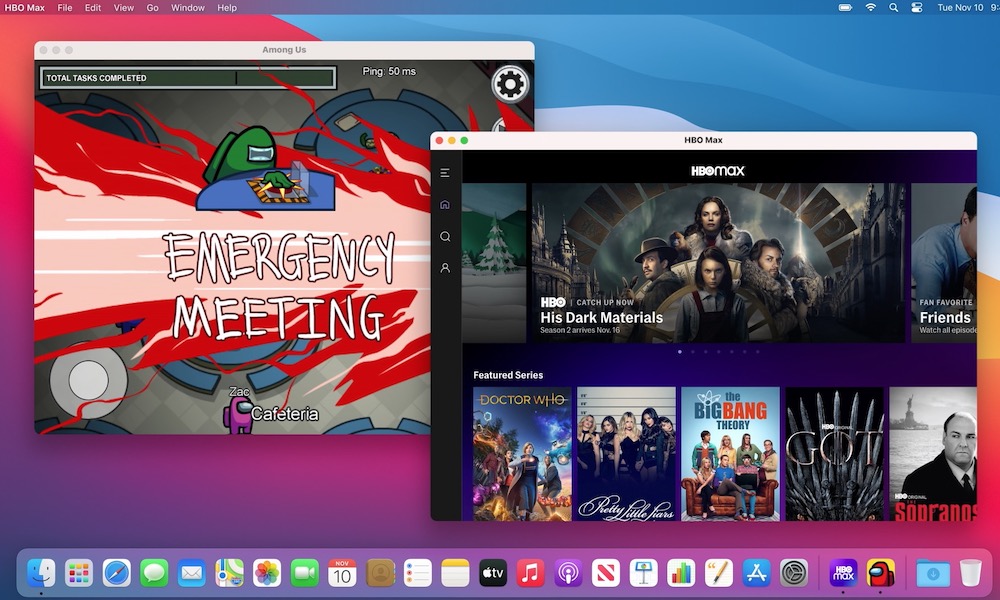Looking Forward to Running iOS Apps on Your Apple Silicon Mac? Some Developers Aren’t on Board
 Credit: Apple
Credit: Apple
Toggle Dark Mode
One of the great things about Apple’s transition to its own ARM-based Apple Silicon is that it promises to open up a whole world of iPhone and iPad apps to work on Apple’s new Macs, starting with the MacBook Air, MacBook Pro, and Mac mini announced yesterday.
Unfortunately, however, it looks like individual developers will be able to make the call as to whether or not their apps will be available to Mac users, and quite a few of the big ones have actually already put on the brakes on that idea.
For example, if you were hoping to run the iPad version of YouTube natively on your new MacBook Air, you’re going to be disappointed, as Google has blocked the ability for all of its iOS apps to run on Apple Silicon Macs — not just YouTube, but also Google Maps, Google Drive, Google Photos, Gmail, and others.
This information was first discovered by 9to5Mac, which was able to poke around the App Store and discover which iOS apps are not being made available for the new Apple Silicon Macs, finding some notable surprises.
For example, in addition to Google’s entire collection of iOS apps, it looks like Facebook is out too, including not only the actual Facebook app, but also Instagram, WhatsApp, and Messenger. Snapchat, Amazon Prime, and Disney+ have also similarly opted not to make their iOS apps available to Mac users.
It’s worth noting that this is actually an explicit choice being made by app developers; by default, all iOS apps are available on the Mac App Store for Apple Silicon unless a developer specifically opts for their iOS apps out of the store, which a number of big developers have done.
That said, it’s hard to judge right now whether this is being done simply out of an abundance of caution to ensure that apps are updated for compatibility, or whether at least some of these developers may eventually release more macOS focused versions of their apps.
It does seem likely, however that services like Google and Facebook would probably prefer users stick to the web-based versions, and in the case of Facebook that’s probably not a huge loss, especially since Facebook already has a native Messenger app for macOS.
It’s not all bad news, however, as 9to5Mac did find that Netflix and HBO Max still appear to be coming to Apple Silicon Macs, as well as a hodgepodge of games, including Sky: Children of the Light, Subway Surfers, and Temple Run. Almost all Apple Arcade games also feature macOS versions already.
iOS apps that are available for the Apple Silicon Macs will appear on the Mac App Store with the disclaimer, “Designed for iPad. Not verified for macOS,” which suggests that Apple may also be putting a separate update or verification program in place to allow developers to certify their apps as macOS compatible. Apps that are not compatible, presumably because their developers have opted them out, will apparently still appear on the App Store, but users will be told they need to download those on their iPhone or iPad.
It also remains to be seen how well many iPhone and iPad will be able to make the transition to the Apple Silicon Mac, which of course doesn’t offer the same touchscreen controls. Apple’s Project Catalyst attempted to offer a way of porting iPad apps to the Mac, but it’s been generally regarded as a failure due to its poor translation of user experiences — even Apple did a very poor job with its own native apps.
While Apple Silicon offers a new way to address this without requiring any effort on the part of developers, not only will it not solve the user experience issues, but it could conceivably exacerbate them, since you’ll quite literally be running an unmodified and unoptimized iPad app on a device that it was never designed to be run on.






